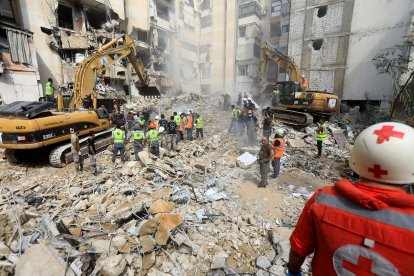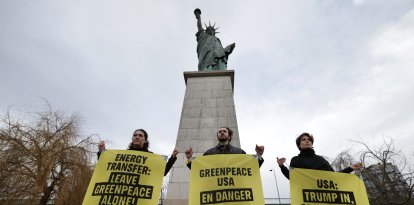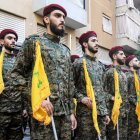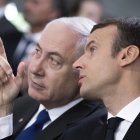Last chance to avert war in Lebanon
As detailed by Lazar Berman in an article in The Times of Israel, "With massive airstrikes on Hezbollah’s missiles, Netanyahu is still trying to get the terror group to hold its fire after 11 months. If it doesn’t, war [i.e. a ground invasion] seems the only option."

Image of Beirut after an Israeli aerial attack.
Right after Hamas perpetrated one of the most savage pogroms in history on Oct. 7 of last year, Iran's puppet, terrorist group Hezbollah, began an unprovoked bombing campaign against Israel, to which Jerusalem avoided a forceful response, until today.
Despite being forced to evacuate tens of thousands of Israelis from the north of the country indefinitely due to these attacks, Netanyahu's government has generally attempted to limit its response to localized, moderate attacks in southern Lebanon.
This policy, motivated both by the need to focus on operations against Hamas and to meet Washington's containment demands, has earned Netanyahu rebuke from a multitude of Israelis. And they are not without reason; the prime minister's critics on this issue consider it unacceptable to get used to the displacement of a significant part of the population due to the sustained terrorist action of a hostile militia.
Israel's success in disrupting Hezbollah's communications system
In an operation thoroughly prepared for years, Jerusalem succeeded last week in disrupting Hezbollah's communications system by exploding their pagers. The group had believed it was protecting itself from Israel spying on their phones by downgrading to this technology. Thousands of militia members important enough to have received one of these devices were injured in the blasts, including the Iranian ambassador. Several dozen were killed in the explosions, which were repeated a day later with walkie talkies used by the terrorists.
Without ruling out some collateral damage, it is hard to imagine a cleaner way to eliminate a significant number of terrorists whose identity was effectively confirmed by their own bosses when they were deemed worthy of receiving one of these devices. And despite this, as we are accustomed to seeing, many in the international community, including the secretary general of the United Nations and the government of Spain, once again condemned the Israeli operation as an excessive and criminal act.
Criticism of Israel despite eliminating a terrorist for whom the US offered $7 million
Despite the humiliation and blow suffered with the pager attack, Hezbollah continued bombing Israel. However, the IDF, surely taking advantage of the chaos caused by the explosions in the pockets and hands of thousands of terrorists, eliminated the commander of a Hezbollah unit, Ibrahim Akil, and 10 other terrorists in a precision strike on the building in south Beirut where they were staying.
The U.S. State Department continues to offer $7 million for information leading to the capture of the now-deceased Akil, who it describes as a key player in the April and October 1983 bombings of the U.S. Embassy and the U.S. and French Marine barracks in Iraq, in which 241 U.S. service members and 58 French soldiers were killed.
Not even this detail about the eliminated terrorist has led the administrations in Washington and Paris to thank the Israelis. On the contrary, both the U.S. and France continue to reproach Israel for responding to Hezbollah's constant and indiscriminate attacks against its territory and demand that it continue to hold out, perhaps with the hope that the terrorists will grow tired.
The latest phase of this escalation has been seen for a few days now with the continuation of Hezbollah's rocket attacks and an intensification of the bombings launched by Israel since Oct. 7.
Hezbollah's attacks are only less deadly because Israel is not using human shields
The Israeli campaign has already caused the displacement of many Lebanese citizens and the deaths of hundreds, including terrorists and civilians. It must serve to destroy the infrastructure from which Hezbollah continues to attack Israel with rockets that are only less lethal than Israel's because, unlike the Shiite militia, Israel does not use civilians as human shields but rather prioritizes their protection.
In a recent and absolutely mind-boggling headline, Spanish newspaper El País interpreted the situation as follows: "Israel Pushes Hezbollah into a War the Militia Has Been Avoiding for Months." At about the same time, The Times of Israel hit the nail on the head with this one: "Israel Keeps Moving up the Escalation Ladder, Hoping Nasrallah [Hezbollah's leader] Will Jump Off."
"With massive airstrikes on Hezbollah’s missiles, Netanyahu is still trying to get the terror group to hold its fire after 11 months. If it doesn’t, war [i.e. a ground invasion] seems the only option," reads the subtitle of the article written by Lazar Berman in The Times of Israel.
RECOMMENDATION























